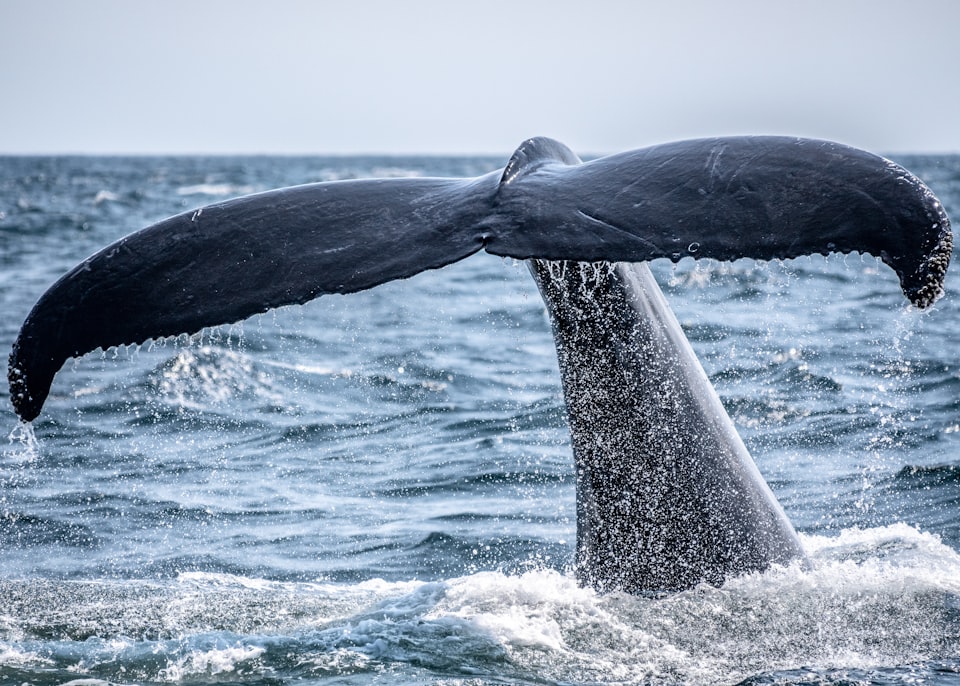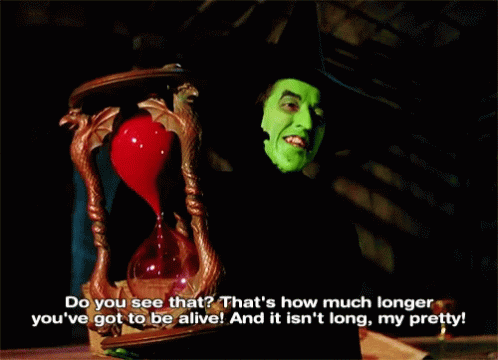Hasta la vista, 2023: On Management #53

Dear readers, thank you so much for reading my newsletter. It has been a(nother) year, and this is not the 2023 roundup I intended to write. Thanks, in advance, for joining me on today's ride.
Something uplifting is happening in the workplace
In the mid-90s, a bschool professor — iirc, macroeconomics — told us that the minimum wage was irrelevant; the lowest union pay rate served as an effective wage floor. The message I took away: nobody actually had to live on $4.25 an hour.
Robust union wages were a norm, structure that augmented the law/regulation.
This has, of course, fallen apart. (If it was true then.) Today the federal minimum wage is $7.25 an hour. There’s no place in the US where a single job at that wage is sufficient to house a family in a 2-bedroom apartment.
But I digress.
Over the last decade-plus, I’ve been bringing what I call “good management hygiene” to people who work in closely held organizations. Insisting on practices I saw as basic, like: use clear, rational goals to let people know what you expect of them.
When lamenting the erosion of the craft of people management, I've blamed financialization of organizations. This led to decreased tenure, thus decreasing investments in developing managers, indeed, in investments in workers at all levels. Companies lacked incentives to invest in a workforce they didn't care to retain.
Recently, I was sparked to expand my thinking on the source of so much unskilled management. I think it was a conversation between Maximillian Alvarez and an older worker and union organizer. The organizer made an almost throwaway comment: when unions were stronger, managers were better.
(Yes, we were better, though the benefits of good management were unequally distributed.)
Head exploding, now I’m wondering whether/how, along with legal boundaries and norms, union work rules served as part of the foundation for good management? Just as union wages once shored up the federal minimum wage.
Was much of our training, as managers, designed to keep us on right side of union work rules, regardless of where we worked?
My old boss Charlie used to give people an “atta boy” when we went an extra mile. This year, I’m going to “atta” the labor movement. Specifically United Auto Workers, and the leadership style of Shawn Fain.
At least one reader and longtime friend may recall my 1990s belief that, yes, unions might be needed for people with truly dangerous jobs. But knowledge workers? Not so much. I have changed my mind.
With Fain, the UAW has made historic progress for their workers, and as in my macro prof’s explanation, non-union autoworkers have benefited.
It’s my strongly held belief that we cannot “empower” other people. We can only help people to see, and step into, their own power.
And indeed, Fain does not promise what he, alone, can deliver. Instead, he describes a positive future that can become possible when people do for themselves, their families, their communities, and one another. In his worldview, they are not playing a zero sum game.
Fain deflects credit, recognizing workers on the ground, and the people on the UAW team. (I would bet he’s a good manager. Their team has shown themselves to be brilliant strategists and operators.)
And here’s an atta for UPS workers who didn’t have air conditioning in their trucks during the hottest US summer on record. To graduate students and post docs, working unpaid: atta you! To doctors, nurses, and medical workers, fighting to offer safe and effective care — atta, atta atta.
Will these union wins create better managers, to the benefit of kids in our families, and some of us? I can't wait to see what comes next.
cw: film pitch
It's a FAFO plot: some Silicon Valley “executives” are doing business with Nazis. The SV dudes are oblivious, and fail to see that all Nazis are dangerous, bad, people; even the guys they went to school with!
Invited to the Nazi encampment at Burning Man, the bros are stoked to join the Nazis' executive coach for a 24-hour personal development marathon. Under a tent, while fasting, the execs will hand-dig deep, person-sized holes. Yes, digging large holes is against the Burning Man principle to Leave No Trace; per the coach, the transgression is the point, it’s grist for growth.
Sleepless and beat after digging for 18 hours, they’ll lie down in the holes they just dug, and be dosed with ketamine. Then, the coach will lead them on a meditation on their own deaths, which are, unbeknownst to them, now imminent.
As Exodus approaches, a Nazi mutant vehicle (built over the body/engine of a Bobcat) is used to cover the holes, and repair the playa.
Maybe your Nazi problem is a business model problem
In a last-minute panic about stocking stuffers, I found myself at clearance shelves in the back of a suburban Paper Source. For $2, I could buy a page of BuzzFeed stickers. Stabbed by nostalgia — weird, it’s not one of my default emotions — I almost put them in my basket.

Instead, I thought, end of an era. Like Lou Reed's friend Donald told him, “Stick a fork in their ass and turn them over, they're done.”
If you need another fork to stick in the ass of this era in tech — the one where your job is changing/saving the world — let’s go to Substack.
Substack makes it free, and easy, to distribute a newsletter, and to monetize it. Launched in 2017 with idealistic statements about helping writers to make a living, Substack raised a boatload of capital when interest rates were low. They’ve bumped along in search of product-market fit, lurching from one controversy to the next.
Their platform has attracted people I admire. Writers, artists, and thinkers. Like Patti Smith, Margaret Atwood, and several of you. Otoh, they’ve given online homes to anti-trans, anti-vaxxers, Covid-misinformationists…
Also, Nazis.
Actual freaking Nazis.
Nazis are publishing monetized newsletters on Substack. Substack’s founders have declined to deplatform the (actual, freaking) Nazis. Instead, they published a post where they turned themselves inside-out justifying their high-minded position.
For those interested in a recap, see my links, below, for Audrey Watters’ piece.
Some writers have pushed back, some have decided to stay in hopes they can change the founders’ minds. Sadly, even if the pushback is successful, Substack's business model doesn't make sense when money is no longer free (to investors.) It's going to be a bumpy ride.
Substack’s business model is dead simple, you can send a free newsletter for free. Then, you can “go paid,” by asking your readers to pay you. Substack earns 10% of your revenue.
It smells like a multi-level marketing business model. Indeed, Substack attracted journalists and essayists with MLM-ish promises — it was easy to quit your job and go independent; 10% of readers would become paid subscribers.
It’s not actually an MLM, though. Writers are Substack’s only downline. Recently, they rolled out a tool enabling writers to recommend one another, which has reportedly juiced the downline. Yet the model is still bi-level; writers don’t earn referral fees. (Yet, lol?)
To survive in an era where investor money is no longer easy (for bros) to get, businesses have to actually continue to grow by operating as businesses.
So Substack’s problem one: their business model caps revenue at 10% of the money collected by paid newsletters.
Going into the weeds for a minute, probably 4% of people who receive a newsletter will pay for it; it’s hard to move that needle significantly higher. With work, though, a writer can grow their readership from 100, to 1000, to 10,000. It’s a long game, it’s hard work, and not everyone will do it, or can do it. Substack's payoff for lots of small, slow-growing, newsletters is not congruent with VC timetables.

To survive in the absence of endless rounds of VC money, Substack has to actually grow. Their playbook has been to attract new writers with large, committed audiences/followings. Like the (actual, freaking) Nazis.
Substack’s other business option is to get bought out. Maybe their “we can’t deplatform the Nazis” post wasn’t directed to the protesting writers on their platform. Maybe they were writing to an an audience of one, a man who paid billions to buy a company that he is transforming into an echo chamber of misinformationists. And Nazis. But I again digress.*
Look, Substack is just one front-end to cash flow for Nazis. But this cash aids and enables the work of people with violent ideologies, and violent plans. Financial companies that deliver money to the Nazis are also more than knee-deep in this.
Through 2023, I’ve been personally demonetizing Substack (I have one paid publication left). I’ve also started unsubscribing from newsletters published there. I’ve been holding onto a few newsletters authored by people I know, for now. Ultimately, I want my name out of the Substack databases.
American friends are seeking citizenship in other countries. I mentioned this to my sister in front of one of her young teens. Then, I said, "Oops, maybe I shouldn’t say this in front of the kids." We decided that the kids are old enough to understand.
Another friend is upset every day about the pogroms to come. Donald Trump’s promise to launch the largest deportation effort in American history makes her upsetness feel (even) more rational.
This newsletter is about managing people, it’s about the workplace. These fears are roiling in our workplaces. History shows that silence and inaction on the part of individuals can become part of an enabling foundation for horrendous structures and acts. And, even small statements and actions can make a difference.
I don’t think we should acknowledge people’s fears in the interest of getting them to focus on work, but to make a difference that matters to everyone's sense of community and safety. And to become stronger in creating that community and safety.
There’s no time like now to resist passivity and cynicism. We can make choices that help.
*This isn't a full analysis of weak points in Substack's business model, like reliance on traffic from Twitter/I mean X – and thus an incentive to play to its owner. Stripe is Substack's only payment processor; what happens if that relationship goes awry? On the revenue side, I didn't want to expend the energy to muster a back-of-the-envelope analysis of their dependence on top-earning newsletters. Case in point, though: it would probably hurt, a lot, to lose Heather Cox Richardson's Letters from an American (reportedly 1.3 million free subscribers.)
Uncharacteristic long, necessary, blockquote
The two words “passive” and “indifferent” themselves have distinct connotations. “Passive” implies “inaction.” Passivity could derive from a range of quite different feelings: from a sense of powerlessness, fear for one's physical safety, social pressures within one's group or community, or tolerance or support for the perpetrators' actions.
“Indifferent” is defined as “having a lack of interest in or concern about something: apathetic.” The “indifference” of “bystanders” to the plight of Jews is often attributed to people's daily preoccupations, from surmounting the hardships of the economic depression of the 1930s to focusing on the survival of their families in the face of wartime deprivations and suffering.
Bystanders, via the United States Holocaust Memorial Museum's Holocaust Encyclopedia.
Notable reading
- Exit Interview: The Life and Death of My Ambitious Career, by Kristi Coulter (Bookshop) (library) The holidays messed with my reading, and I'm about to get back to this memoir by a woman who worked at Amazon in the mid-00s. (Suggested by Jane Watson, whose recommendations always come through for me!)
- Dying Broke at the New York Times, about elder care issues in the US. We're all going to be old, some day. Better policy decisions in your office, and in our governments, may one day help you, yours, and your team members. As someone who has older parents who still live quasi-independently, I've been up close and personal in this topic. This is the kind of work the NYT does best.
- ‘Financial Ruin Is Baked Into the System’: Readers Debate Long-Term Care Costs - The New York Times (unlocked link)
"Marsha Moyer, 75, a retired teaching assistant from Memphis, said she spent 12 years as a caregiver for her parents in San Diego County and another six for her husband. While they had advantages many don’t, Ms. Moyer said, 'it was a long, lonely job, a sad job, an uphill climb.'
In contrast, her sister-in-law’s mother lived to 103 in a 'fully funded, lovely elder care home' in Denmark during her last five years. 'My sister-in-law didn’t have to choose between her own life, her career and helping her healthy but very old mother,”'Ms. Moyer said. 'She could have both. I had to choose.'”
- ‘Financial Ruin Is Baked Into the System’: Readers Debate Long-Term Care Costs - The New York Times (unlocked link)
- Paul Lynch's 2023 Booker Prize winner Prophet Song (Bookshop) (library) is about a regular family who believes that they live in a constitutional republic, only to face a totalitarian insurrection and civil war. An evocative detail, for me: after rebels take one residential neighborhood, flags of the insurrectionists are quietly removed by people who had been flying them. I remembered two homes in my suburban neighborhood; on November 7, 2020, all of their Trump regalia simply disappeared from view.
Thank you, again, for being there in 2023 for me to to write to. I'll have more year-endish stuff when I come back in mid-late January. Many, many, thanks to people who have paid to get my newsletter in their inboxes.
If you write a newsletter and are contemplating an exit from Substack, hmu if you want to hear about my experience with Ghost (10/10 would do business again.)
If you have workplace or management questions, please send me a note! I love to hear from you. I may be slow to respond next week, which will include a road trip and holiday recovery, but I'll be back in full force on January 8.
May you and your loved ones be safe, healthy, and free.
P.S. This is not exactly the note that landed in people's inboxes on 12/31/23 – I've edited some typos and added a couple of clarifying points. Also that epic Wizard of Oz gif. Maybe in 2024 I will become the person who writes the whole newsletter, and then leaves it to sit for a day before a final edit...lolsob.
Links, etc.
- History of Federal Minimum Wage Rates Under the Fair Labor Standards Act, 1938 - 2009, Department of Labor
- Would you rather have 3 roommates or 4 jobs? What it takes to afford rent on minimum wage, Thu, Feb 9 2023, by Kamaron McNair
- Working People Podcast, Maximillian Alvarez. I will see if I can remember the exact episode that sparked me, because then I can credit the person who made the statement relating better managers to stronger unions.
- The Work of Living: Working People Talk About Their Lives and the Year the World Broke, by Maximillian Alvarez (Bookshop) (library)
- In Working Title = Capitalism: On Management #49, I talked to David Gelles about his book about Jack Welsch and GE, which very simply and effectively detailed the causes and effects of financialization.
- UAW President Shawn Fain Update 12/11/23. This really cheered me up; servant leadership at its best. May Shawn Fain find all the the support he needs to be the leader he seems to be.
- Holes, Artifacts, and Weeds | Burning Man, accessed December 28, 2023.
- The artists always know first. Last Great American Whale, Lou Reed at Farm Aid in 1990, I'm lolling at Dick Clark's intro. I listened to Lou Reed's New York nonstop when it came out...pretty sure I walked around Manhattan listening on my Walkman lol, and probably still have a cassette somewhere in a box.
- Leaving Substack (Again), Audrey Watters at Second Breakfast, Dec 29, 2023. As noted above, a good recap of who has said what to whom re: Substack. I can't bear to link to Substack's "why we can't deplatform the Nazis" post; you'll find it linked here.
- My newsletter conversion estimate of 4% (free subscriber to paid) was originally based on my assumption that email newsletters would convert with the standard "direct mail" metric. For quite a while, I kept a list; I'd make a note when I saw a newsletter writer who shared stats. 4% held as a good ballpark.
In December, 2023 industry expert Dan Oshinsky affirmed, "A 4% conversion rate would be pretty good for many newsletters. Anything between 5-10% would be considered exceptionally good." AWeber, Beehiiv, ConvertKit, Ghost, Mailchimp, or Substack: Which Is The Right ESP For Your Indie Newsletter? - Substack Has a Nazi Problem, Opinion by Jonathan M. Katz - The Atlantic via MSN 11/28/2023. This article seems to have sparked the more recent events.
- Substack's Dilemma Or, "A cannot be both itself and non-A at the same time," Logic 101, by Margaret Atwood Dec 27, 2023. I, for one, would never want to be called out by Margaret Atwood.
